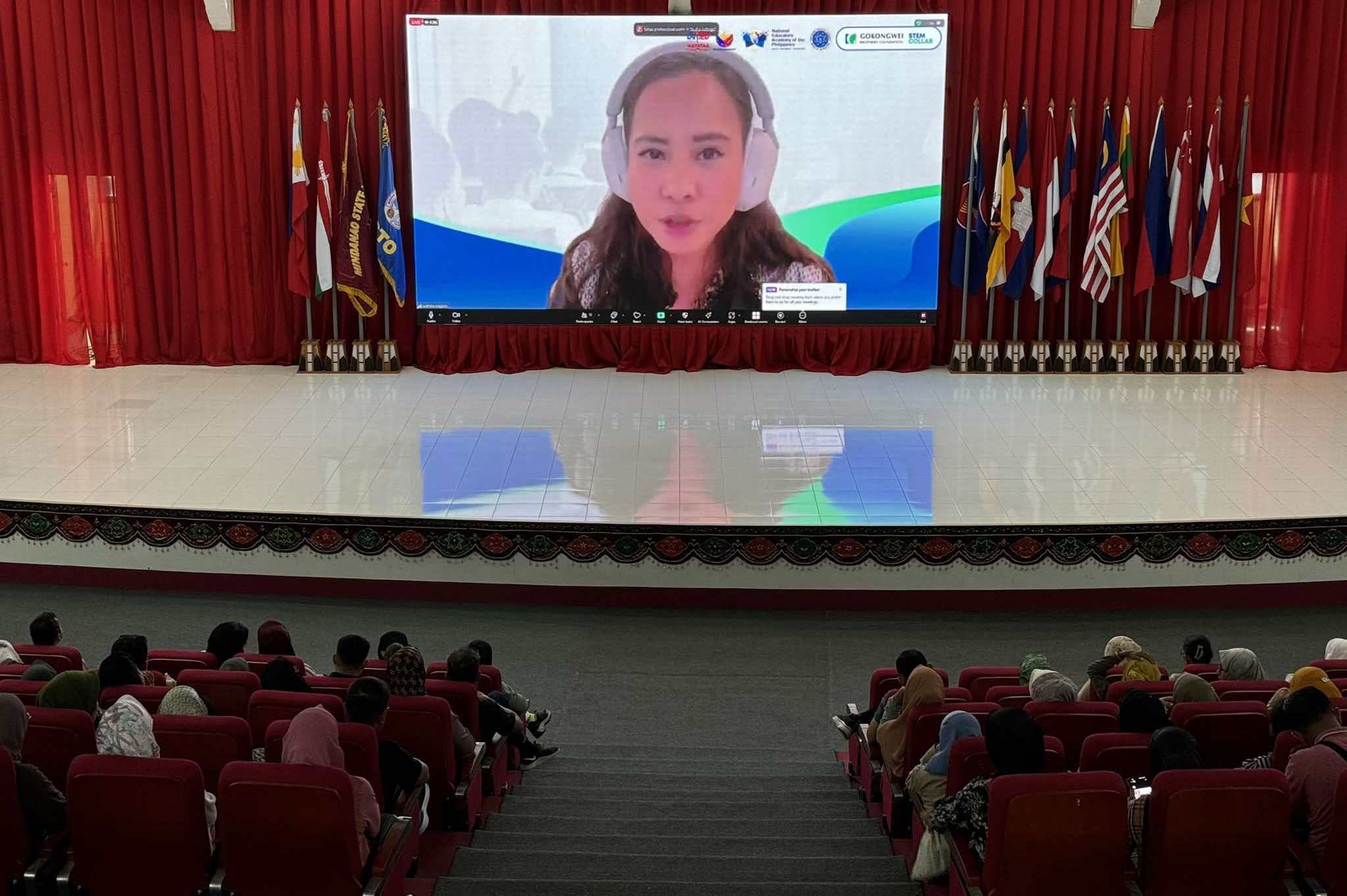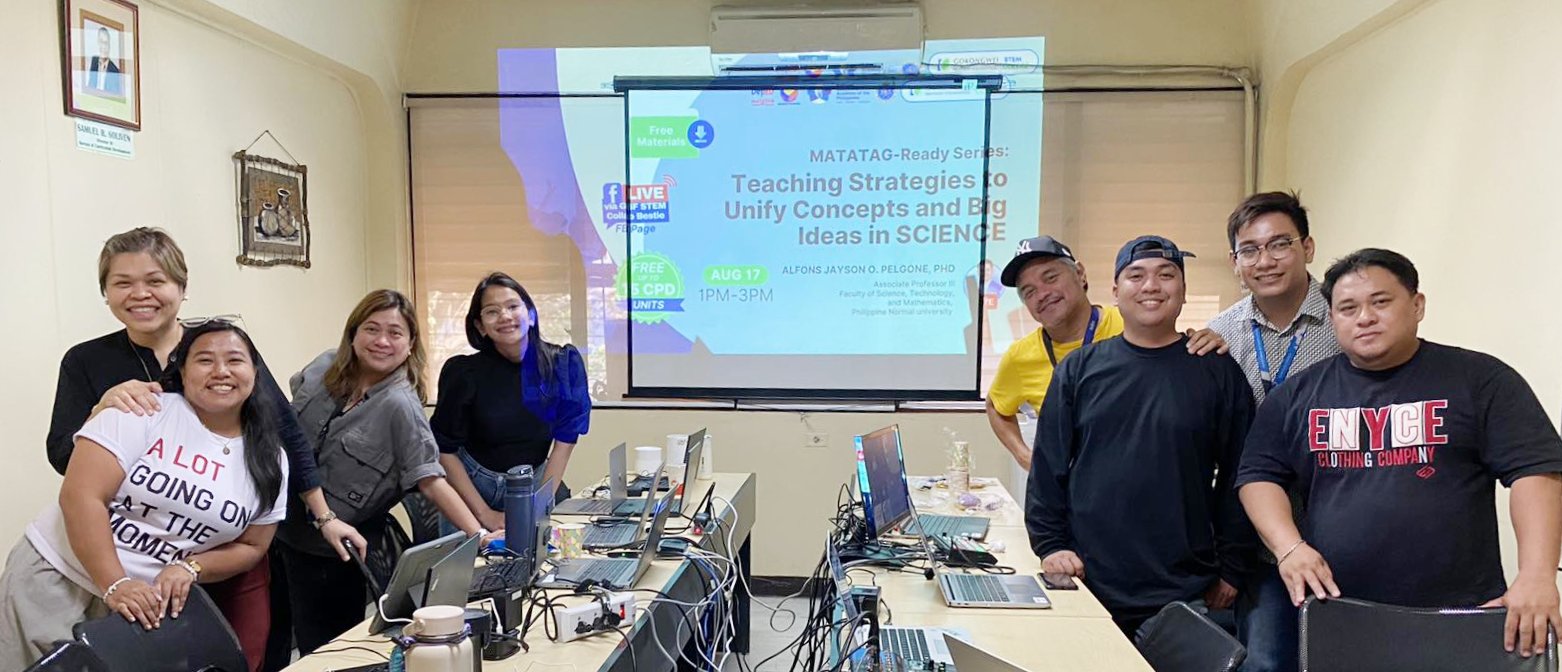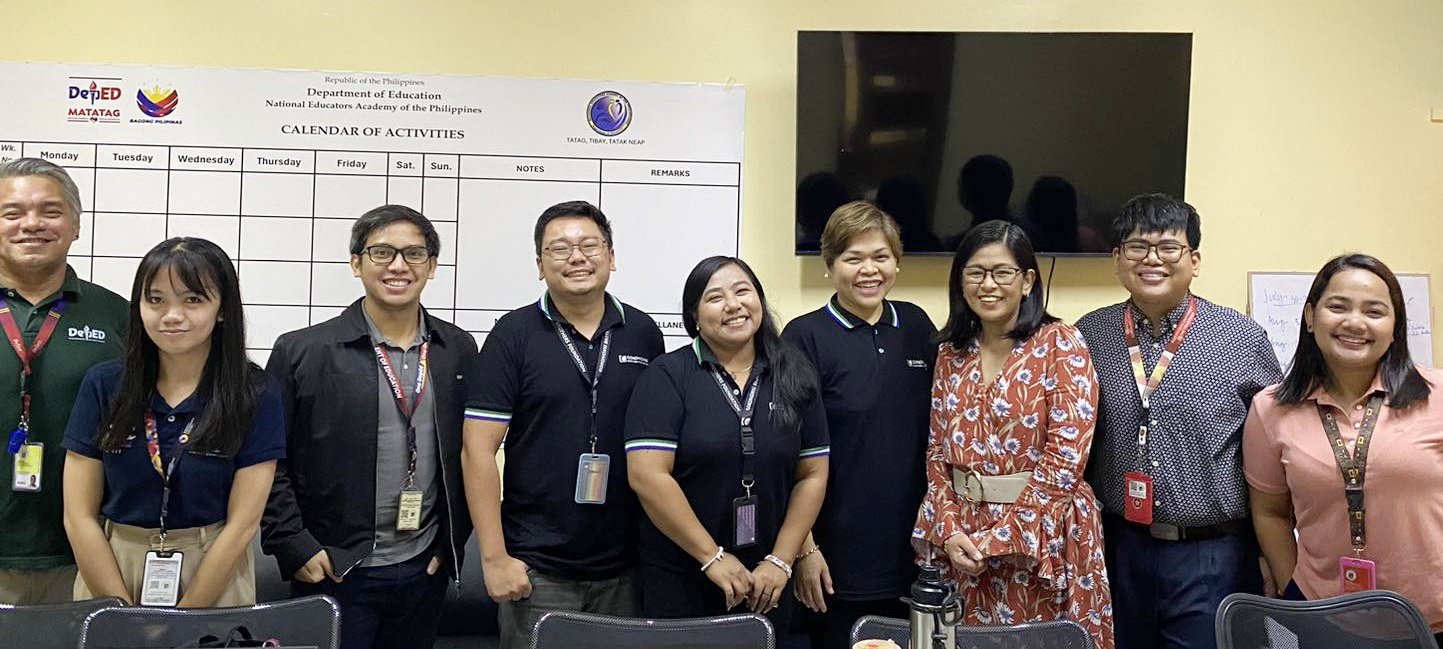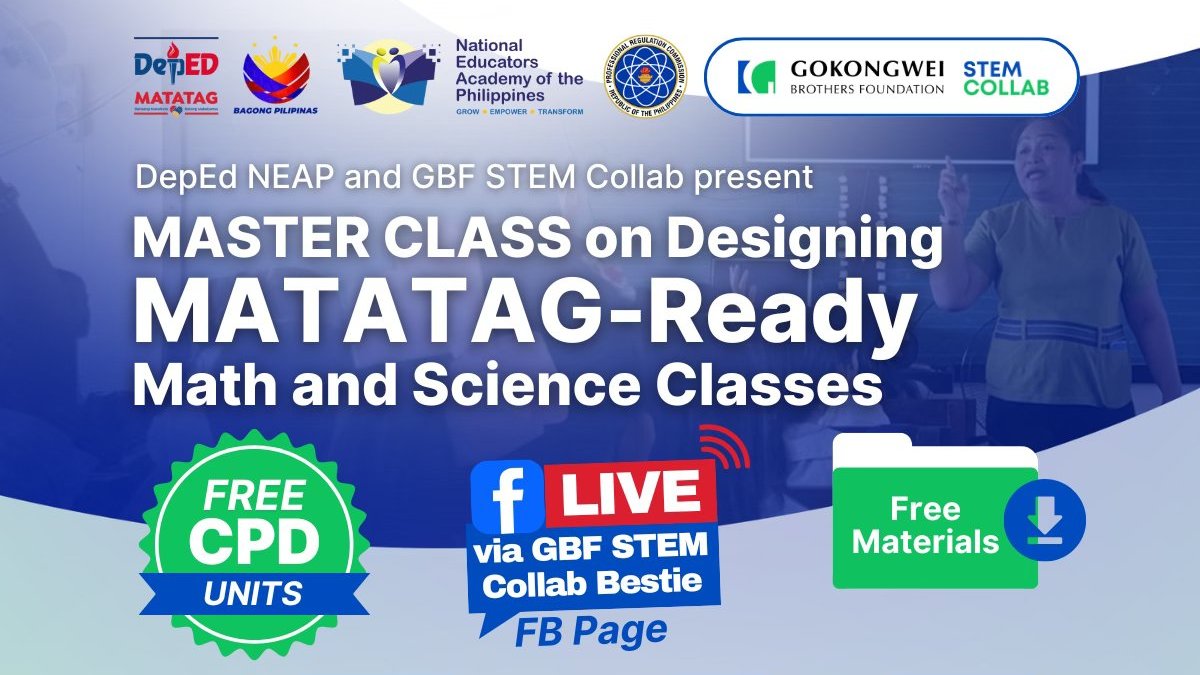This webinar series is a first-of-its kind in this partnership, given that teachers who complete the sessions and submit requirements can earn Continuing Professional Development (CPD) points. This credentialing underscores NEAP's steadfast dedication to supporting educators in their continuous professional growth.
The series which started on August 17 ran for three consecutive Saturdays tackling Math and Science separately, with 6 sessions in total. The goal of the webinars was to enrich the teaching and learning experience in Mathematics and Science for Grades 1, 4, and 7 with the MATATAG curriculum implementation scheduled for this school year. The topics focused on the integration of Big Ideas to foster higher-order competencies and the interrelatedness of concepts, learner assessments, and lesson planning.
The GBF STEM Collab and DepEd NEAP teams designed and implemented the webinar series to help teachers prepare for the curriculum implementation as the school year opened. Each episode had a reach of around 100K, with teachers joining from all regions from across the country.

The webcast reached as far as BARMM where more than 400 teachers gathered in the auditorium of Mindanao State University Tawi-Tawi College of Technology and Oceanography to watch as a group. This was testament to the power of collaboration and the desire for shared learning experiences. Resource speakers were subject matter experts for Math and Science namely Sir Joseph Randolph Palattao, a Master’s Degree holder in Education specializing in Teaching Primary School Mathematics and Science; Assoc. Prof. Alfons Jayson O. Pelgone, a Science Education Doctorate Degree holder; and Prof. Crist John Pastor, a PhD holder in Biochemistry with a Postgraduate Certificate in Academic Practice (PGCAP).

The partnership between GBF and DepEd NEAP is founded on a shared vision of advancing educational excellence in the Philippines. By equipping educators with essential tools, knowledge, and support, this collaboration hopes fostering a culture of excellence and continuous improvement in STEM education.



